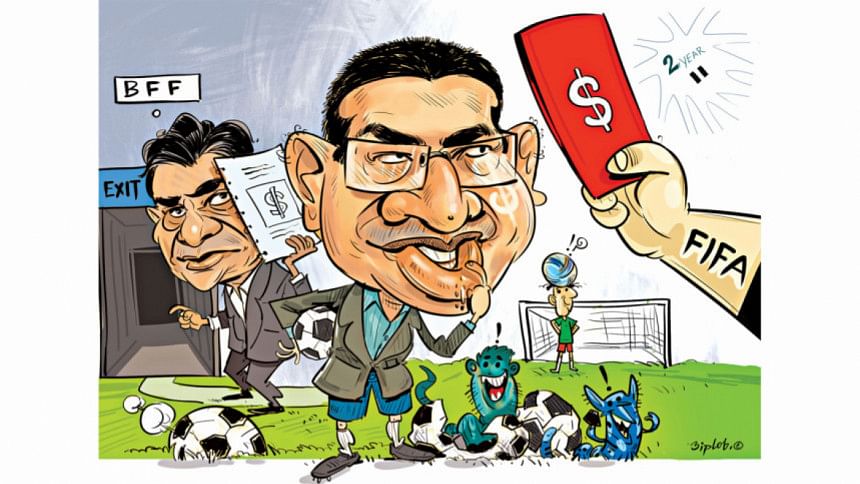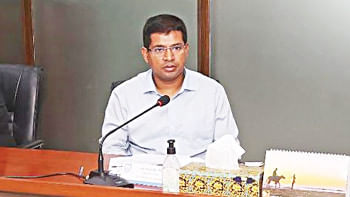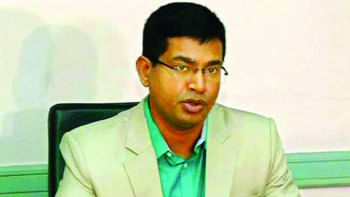Financial Irregularities: A chronic plague in BFF

The two-year ban on Bangladesh Football Federation General Secretary Abu Nayeem Shohag handed down by FIFA on Friday showcased how loosely the local football authority handles funds from the game's world governing body.
Shohag was banned by FIFA's adjudicatory chamber of the independent Ethics Committee for having used false and/or falsified documents to justify payments made by the BFF with FIFA funds. He was also fined approximately BDT 12 lakh, according to a FIFA media release on Friday.
Controversial transactions included the purchase of sports wearable goods, footballs, flight tickets for the national team and lawnmowers using FIFA's Forward Fund.
As per the FIFA investigation, Shohag breached articles 13 (General duties), 15 (Duty of loyalty) and 24 (Forgery and falsification) of the FIFA Code of Ethics.
As a high-ranking official who bears more responsibilities in comparison with other officials within the BFF, Shohag had a duty of care towards the BFF to safeguard and guarantee that all transactions were carried out in the best interest of the association, the investigation report said, adding that the BFF general secretary had failed to perform his duties by handling falsified documents in purchases.
In a 51-page decision about the charges against the BFF general secretary, the Adjudicatory Chamber also observed that the use of falsified documents 'appears to be a recurrent and repeated problem that detriments BFF's finances'.
Although Shohag pleaded his innocence in a statement issued yesterday and has expressed a desire to appeal the 'biased and targeted decision' before the Court of Arbitration for Sport (CAS), the ban has caused a ripple effect.
It has also served as another big blow to the BFF, which is still reeling from the controversial withdrawal of the national women's team from the Olympic qualifiers citing a financial crisis.
The cash-strapped local football body survives mainly on FIFA and Asian Football Confederation (AFC) funds. The BFF receives around Tk 20-22 crore from the FIFA and AFC per year, which accounted for more than 75 per cent of its expenses, of around 30 crore, last year, according to a top BFF official.
Apart from the Forward Fund, FIFA also provided money to the BFF under its Financial Assistance Programme (FAP) to ensure the smooth disbursement of administrative and developmental expenditures.
Football in the country is no longer a crowd-pulling sport as had been the case in the early 90s. The revenue BFF secures from local sponsors is very little as the domestic leagues nowadays hardly draw a crowd.
However, allegations of financial mismanagement in the BFF are nothing new.
Former national striker Sheikh Mohammad Aslam said: "The disclosure of the financial irregularities and the suspension of general secretary Abu Nayeem Shohag by FIFA is the truth we have been telling for a long time."
An executive committee member of the BFF from 2008 until his resignation in 2016, Aslam said that he talked about the irregularities time and again but nobody paid heed to his warnings.
"It is a matter of shame for the whole nation," said Aslam, renowned in his playing days for his prolific goalscoring.
Aslam further claimed that Shohag was only a pawn. "Shohag is not the only person responsible for the irregularities. I think a lot of people are involved. We need an independent investigation committee to unearth irregularities in the BFF."
Abdul Gaffar, another former national footballer, termed it a day of disgrace. "We have been speaking about irregularities and I'm afraid many more will come out," said Gaffar, demanding that the parliamentary standing committee launch an investigation into the BFF's irregularities.
Most of the former footballers blamed incumbent BFF president Kazi Salahuddin for the poor state of the game both on and off the field.
Serving his fourth term at the helm of the BFF, Salauddin has often come under criticism for setting lofty targets but fulfilling little. Under his stewardship, the men's football team has slipped from 180th in 2008 to their current position of 192nd in the FIFA rankings. Meanwhile, the domestic football league has been played in front of virtually empty stands.
The only silver lining from the famous footballer-turned-administrator's tenure is the progress of the women's football team against all odds.
However, Salahuddin told The Daily Star yesterday that he did not believe the issue would fester, saying that FIFA would continue to provide funds.
"My mandate is up to 2024 and I think there will be no problems getting funds from FIFA, who are now happy with the BFF account because they went through it from 2016 to 2020. But it is true that we may face problems roping in sponsors for football events."

 For all latest news, follow The Daily Star's Google News channel.
For all latest news, follow The Daily Star's Google News channel. 











Comments